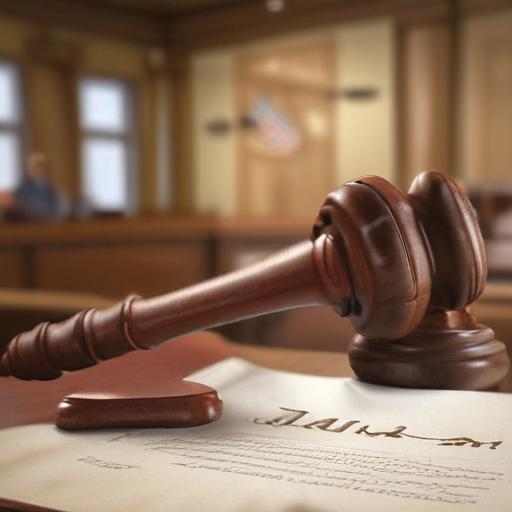A federal judge has ordered the release of Mahmoud Khalil, a former Columbia University graduate student, from an immigration detention center where he has been held since March. Khalil’s detention came amid the Trump administration’s efforts to deport him due to his participation in pro-Palestinian protests. U.S. District Judge Michael Farbiarz made the ruling following a request from Khalil’s attorneys, who argued for his release on bail or at least a transfer to a detention facility in New Jersey to be closer to his wife and newborn child.
Khalil was the first arrest linked to the Trump administration’s crackdown on students engaged in activism against Israel’s actions in Gaza. U.S. Secretary of State Marco Rubio has maintained that Khalil’s continued presence poses a risk to American foreign policy. However, the judge stated that the government cannot justify Khalil’s continued detention based on foreign policy concerns alone. Instead, the administration claimed he was being held due to alleged discrepancies in his green card application, which Khalil disputes.
During a lengthy phone hearing, Judge Farbiarz emphasized that it is highly unusual to seek detention for someone with Khalil’s circumstances, noting that he poses no flight risk or threat to the community. Khalil’s family ties—being married to a U.S. citizen and having a U.S. citizen child—played a significant role in the judge’s decision. The ruling highlights that Khalil has no criminal record, and the government failed to provide evidence of any violent behavior or criminal activity.
Khalil’s lawyers argue that his detention represents a broader attempt to suppress free speech among students voicing political dissent. Notably, he was not charged with any legal infractions during the protests, but his visibility and activism made him a target for the administration’s scrutiny.
This decision could set a precedent for similar cases involving immigrant rights and free speech on college campuses, emphasizing the importance of protecting the rights of individuals engaged in political expression. Khalil’s situation serves as a reminder of the ongoing debates surrounding immigration policies and civil liberties in the United States.
